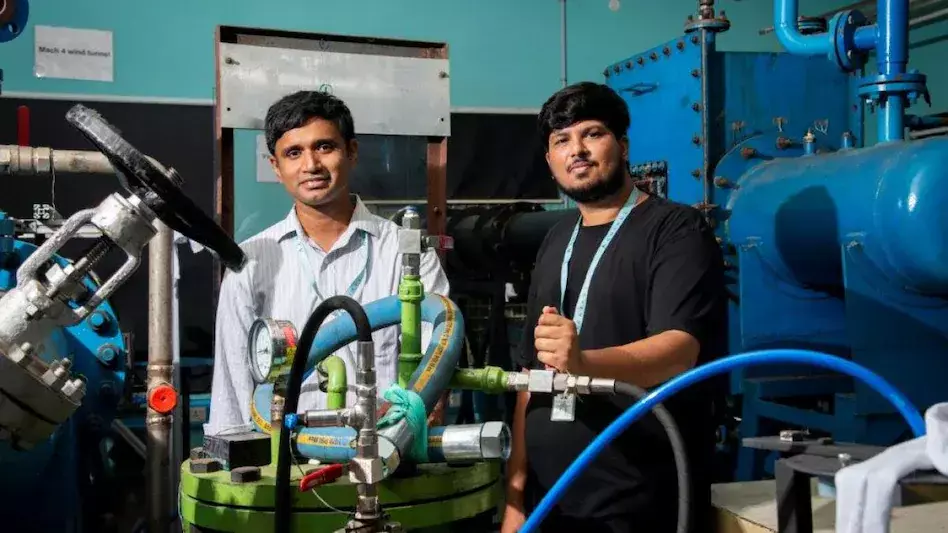
Agnikul raises ₹150 crore to power India’s space-tech boom
The Indian space-tech industry has been gaining momentum in recent years, with several startups and private companies making significant contributions to the sector. One such company is Agnikul Cosmos, a Chennai-based space startup that has been making waves with its innovative approach to satellite launch technology. In a recent development, Agnikul Cosmos has raised ₹150 crore in Series C funding, marking a significant milestone in the company’s journey.
The funding round, which was led by new investors, reflects the growing interest in India’s commercial space sector. The investment will be used to develop small satellite launch vehicles, a critical component of the space-tech ecosystem. With this funding, Agnikul Cosmos is poised to take a significant leap forward in its mission to make space technology more accessible and affordable.
Agnikul Cosmos was founded in 2017 by Srinath Ravichandran and Moin SPM, two young entrepreneurs with a passion for space technology. The company’s name, Agnikul, is derived from the Sanskrit word “Agni,” meaning fire, and “Kul,” meaning family. The name reflects the company’s mission to ignite a passion for space technology and make it more accessible to people around the world.
The company’s flagship product is the Agnibaan, a small satellite launch vehicle that is designed to launch payloads of up to 100 kg into low Earth orbit. The Agnibaan is a modular, plug-and-play system that can be easily customized to meet the needs of various customers. The vehicle is also designed to be highly efficient, with a unique propulsion system that uses a combination of liquid and solid fuels.
Agnikul Cosmos has been working closely with the Indian Space Research Organisation (ISRO) to develop the Agnibaan. The company has also partnered with several other organizations, including the Indian Institute of Technology (IIT) and the National Aerospace Laboratories (NAL), to advance its research and development efforts.
The ₹150 crore funding raised by Agnikul Cosmos is a significant milestone for the company. The investment will be used to further develop the Agnibaan launch vehicle and to establish a robust manufacturing and testing facility. The company plans to use the funding to hire new talent and to expand its operations to meet the growing demand for its services.
The funding round has also attracted new investors, who are betting on the potential of India’s commercial space sector. The investors believe that Agnikul Cosmos has the potential to become a leading player in the global space-tech industry, and they are willing to put their money behind the company’s vision.
The growth of India’s space-tech industry is not limited to Agnikul Cosmos. Several other startups and private companies are working on innovative projects, ranging from satellite development to space tourism. The Indian government has also been supportive of the industry, with initiatives such as the Indian Space Policy and the Space Activities Bill.
The Indian Space Policy, which was announced in 2020, aims to promote the growth of the space-tech industry in India. The policy outlines several initiatives, including the establishment of a new space agency, the Indian National Space Promotion and Authorisation Centre (IN-SPACe). The agency will be responsible for promoting the growth of the space-tech industry and for regulating the sector.
The Space Activities Bill, which is currently before the Indian parliament, aims to provide a regulatory framework for the space-tech industry. The bill outlines several provisions, including the establishment of a new regulatory body, the Space Activities Regulatory Authority. The authority will be responsible for regulating the space-tech industry and for ensuring that companies comply with safety and environmental standards.
The growth of India’s space-tech industry is also being driven by the deeptech momentum. Deeptech refers to the use of advanced technologies, such as artificial intelligence, machine learning, and robotics, to solve complex problems. The space-tech industry is a key area where deeptech is being applied, with companies using advanced technologies to develop innovative solutions.
Agnikul Cosmos is a prime example of a deeptech company that is using advanced technologies to solve complex problems. The company’s use of modular, plug-and-play systems and its unique propulsion technology are examples of deeptech in action. The company’s focus on innovation and its commitment to using advanced technologies to solve complex problems make it an attractive investment opportunity for investors.
In conclusion, the ₹150 crore funding raised by Agnikul Cosmos is a significant milestone for the company and for the Indian space-tech industry. The investment reflects the growing interest in India’s commercial space sector and the potential for companies like Agnikul Cosmos to become leading players in the global space-tech industry. With its innovative approach to satellite launch technology and its commitment to using advanced technologies to solve complex problems, Agnikul Cosmos is poised to make a significant impact on the space-tech industry.
As the company progresses toward orbital launch milestones, it will be closely monitored by industry observers. The success of Agnikul Cosmos will not only be a testament to the company’s innovative approach but also a reflection of the growing momentum in India’s space-tech industry. With the right support and investment, companies like Agnikul Cosmos can help propel India to the forefront of the global space-tech industry.
News Source: https://ascendants.in/business-stories/agnikul-cosmos-raises-150-crore-series-c-funding-space-tech/





